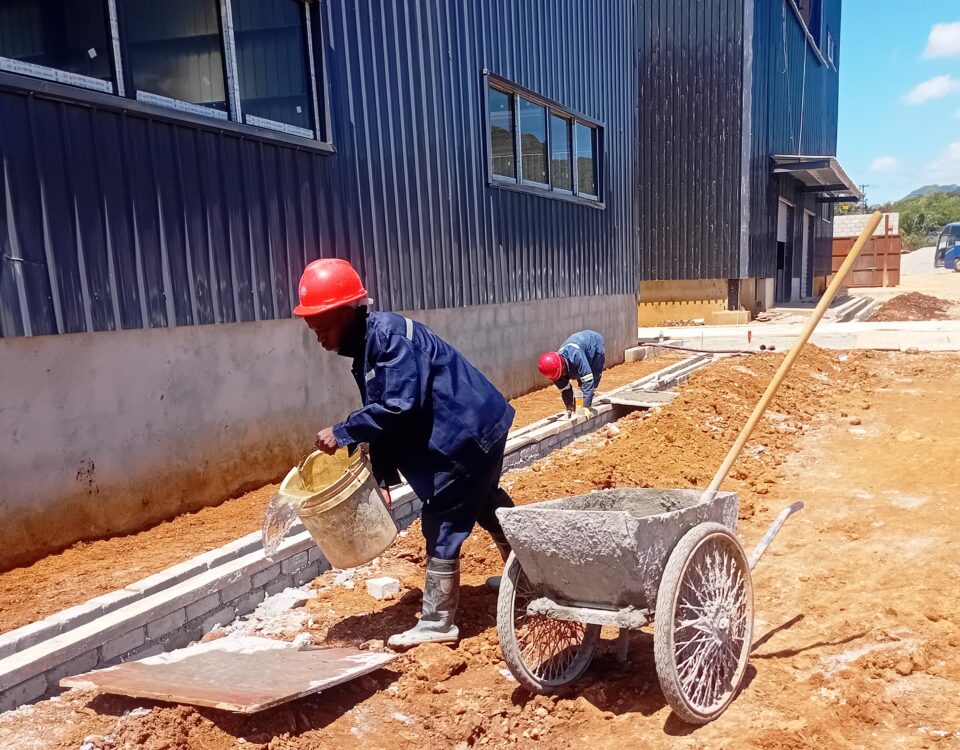
Mutare public transport mogul Mupfumi receives ZNCC Lifetime Achievement Award and opens up on his illustrious business career
July 11, 2025
Munowenyu speaks out on Discovery Ambulance Services vision after Harare Residents Trust backlash
August 28, 2025The rise of Shadaya the ‘Iron lady’ of gold mining in Manicaland
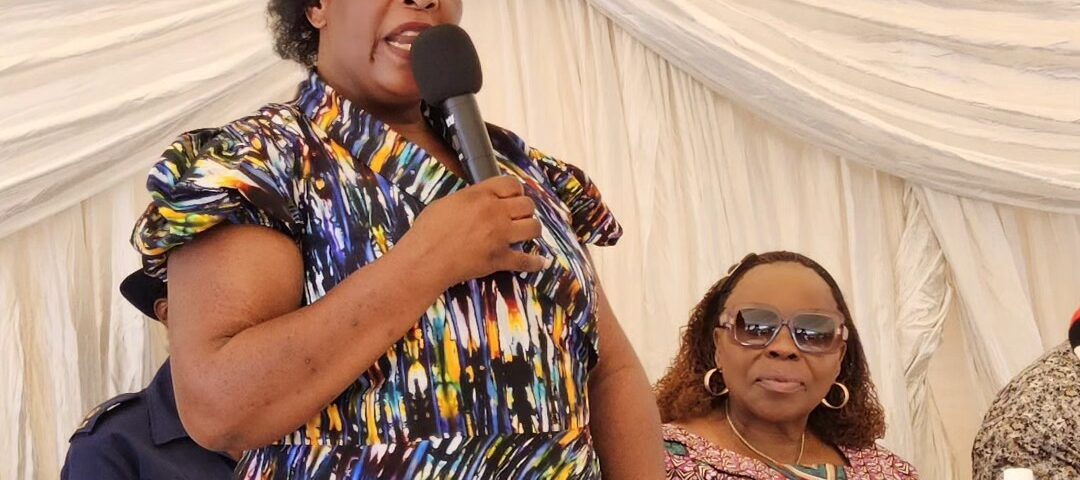
Judith Shadaya a female miner in Manicaland that has carved her name in the trade dominated by men is making strides.
… “I believe each and every step and all what I went through – the frowns, the smiles, the tragic death of my husband and son in an accident, then the hardware, farming and mining opportunities, all moulded me into a very strong woman,” said Shadaya.
Ngoni Dapira
THE adage “It’s not where you came from, but where you are going,” means that your past experiences and origins don’t determine your future. This is the transformational life story of 52 years old Mutare based female miner and entrepreneur Judith Shadaya, popularly known as ‘Mother’ in the mining circles.
From humble beginnings of growing up in the rural areas in Chikomba District in Mashonaland East and only reaching Form 4 in her education, she says when she looks back and what she has achieved over the years, it can only be God’s grace and her strength of mind that always pushed her when she hit rock bottom. In the mining circles in Manicaland she has become a woman who is assertive, resilient and not easily swayed from her convictions of championing inclusivity in mining, especially for women and persons with disabilities, which has seen some calling her the iron lady of gold mining in the province.
Easterntimeszim interviewed Shadaya who runs her company Generational Wealth Creations (GWC) which operates various entities from farming, mining, real estate and is soon to build her private school. She opened up that her journey was not easy with many scars which still hurt up-to-date, but she also feels those scars made her the strong and visionary woman she is today.
Family upbringing
Shadaya was born in 1973 in a polygamous family in Chikomba District. In her direct family they were eight siblings, four boys and four girls, but in total they were 18 siblings. In High school she learned at Zinatsa Secondary School and St Francis of Assisi High School in Mashonaland East where she reached up to Ordinary Level. After completing her Form 4 she went to Harare to stay with her sister. She said she tried out temporary teaching for one and half years just after finishing Form 4 but felt it was not for her and that is the only public sector job she ever tried out in her life. Whilst staying with her sister in Harare that is when she met her late husband Kingstone Nyavira who was from Zvimba village in Mash West. Born in a chieftainship clan, she says her late father Chief Neshangwe was an ex-detainee and their family had a strong political background, so from the age of seven years she was exposed to politics. Shadaya however said her business career has never been political though she now dabbles in politics as a strong believer of women empowerment, taking after her mother, who is still alive, that worked in the Ministry of Women Affairs from the 1980s when it was set up until her retirement age.
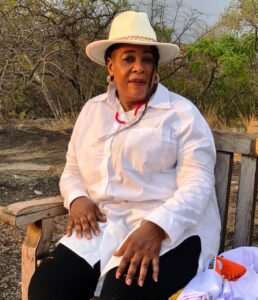
Judith Shadaya now enjoying the fruits of her labour.
“I never knew one day I would become a successful entrepreneur and miner because I grew up deep in the rural areas. I thought I would get married and live a simple life but God had bigger plans for me which is why I want to encourage other women that it Is never about where you come from or your present situation but where you are going and the decisions you make when you are down,” said Shadaya.
A devote Christian, Shadaya now goes to the Salvation Army church although in her childhood she grew up in the Methodist Church in Zimbabwe.
Business career
After being married by her husband, the late Nyavira they moved to Mutare in the early 1990s where her husband was working for the Ministry of Roads now called the Ministry of Transport and Infrastructural Development. From 2006 to 2008, she says, through the indigenization drive, she took advantage of it and started a small hardware shop in the downtown area in Mutare. She says she would sometimes get large scale tenders in the construction sector and business boomed to the extent that her late husband decided to resign from the Ministry of Roads and focus on the hardware business together. The Indigenisation and Economic Empowerment Act in Zimbabwe, enacted in 2007, aimed to transfer a majority (51%) ownership stake in certain businesses, particularly in the extractive sector, to indigenous Zimbabweans. This policy was part of a broader effort to empower previously marginalized groups and promote economic development, which entrepreneurs like Shadaya took advantage of when the gap arose.
However sadly in 2011 she lost her husband and son Kingstone (Junior) in a tragic road accident. This broke her but it became a turning point as well in her life that changed her life as she picked up the pieces from the devastating loss. They had received an A2 farm in 2006 in Nyazura through the Land Reform programme, so in dealing with the tragic death of her husband and son in 2011 she started focusing on tobacco farming seriously.
“I started farming with no experience. I focused on tobacco farming because it was the in thing back then around farms in Nyazura after many white farmers were displaced from their farms during the land reform. I really thank my neighbour at the farm Mr Vanceburg, a South African white farmer who was a seasoned tobacco farmer, for the support he gave me to catch up fast. I had started farming in 2010 together with my husband but I became serious in 2011 after losing my family in the tragic accident. From 2012 to 2013 I was recognized amongst the best black female tobacco farmers in the country and I was the first black female tobacco farmer to sell tobacco to BAT (British American Tobacco) at large scale. At peak we had around 60 to 70 farm labourer’s and I also ventured into animal husbandry with cattle, goats and sheep,” said Shadaya as she went down memory lane.
She said would go to the farm on weekends but lived in the high density suburb of Chikanga back then. However, present-day having made it, she now lives in the affluent low density suburb of Greenside extension with various real estate properties.
With revenue being generated from farming tobacco, in 2014 she started another business of selling second hand cars imported from Germany, especially Mercedes Benz models, and opened a car sale business which she ran for about two years. In 2014 that is when she decided to diversify into gold mining and started off by buying shares in Mandara, a gold mining company in Penhalonga. The agreement was for five years, but she says it was good for her because she wanted to learn more about the gold mining sector. During the five years period she managed to buy her own gold claims in Manicaland in Penhalonga, Odzi and in Nyanga as well as in Masvingo province and Chegutu in Mashonaland West province. Present-day the GWC Mine at Nyagari in Penhalonga is their main production plant where they are doing reef mining with 160 workers including full-time and part-time workers.
Business achievements
Her gold mining company GWC Mine also trading as Shadtar Mining Company has over the years been praised as a success story of women in mining, which earned her a seat as the Zimbabwe Miners Federation (ZMF) Manicaland chairperson since 2021 up-to-date. She became the first female to hold that post. She is also the national secretary for Women Miners for Economic Development (WomenMiners4ED).
She added that women in mining are looked down on but said she wants to change the imbalance by encouraging and empowering other women in the sector. At Shadtar Mine she said they are employing over 160 miners including assisting widows that are into mining. “The biggest stumbling block when we started was stigma. Women were called gwejelinas (colloquial term for female artisanal gold miners) and not taken seriously. Even some family members and some church members stigmatized my interests in mining when I started. But it was my association with some white farmers in Nyazura when I was farming tobacco that opened my eyes to the opportunities in mining which I decided to try out and I have no regrets up-to-date,” said Shadaya.
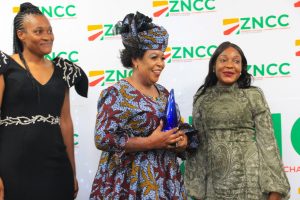
Shadaya (centre) back in 2023 when she was awarded the 2023 ZNCC Manicaland Businesswoman of the Year at the annual Zimbabwe National Chamber of Commerce (ZNCC) business awards.
She says her recognition this year in June at the Zimbabwe National Chamber of Commerce (ZNCC) Manicaland business awards as the Best Sustainable Gold Producer (female category) speaks volumes about her principle to practice formalized mining. This further encourages her after she scooped the top accolade in 2023 as the Manicaland Businesswoman of the Year at the prestigious awards organised annually by the chamber of commerce regionally and nationally.
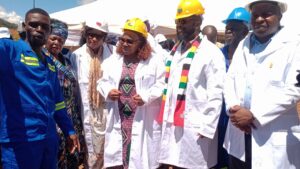
Minister of Women Affairs, Community, Small and Medium Enterprises Development Senator Monica Mutsvangwa and Minister of State for Manicaland Provincial Affairs and Devolution Advocate Misheck Mugadza (yellow hats) touring GWC Mine as part of the 2025 International Women’s Day national commemorations hosted by Manicaland in March.
“I now see myself in the near future becoming one of the best female miners in Zimbabwe into formalized, sustainable gold mining. Some might do well doing shortcuts but I will stand firm in promoting sustainable mining that protects the environment as well as safety and health of our miners,” she said.
Formalized mining in Zimbabwe refers to the process of integrating artisanal and small-scale miners (ASMs) into the formal mining sector. This involves implementing policies and initiatives to regularize their operations, improve working conditions, and ensure they contribute to the formal economy through taxes and royalties. Formalization offers benefits to miners, the government, and communities, including improved safety, environmental protection, and access to financial support.
Perspectives on mining in Zimbabwe present-day
She however says present-day the mining industry has improved and there are now a lot for women than when they started around 2013. She thanked government policies promoting this through quota systems as well as civic society organizations that promote awareness against archaic traditional beliefs which stigmatize and elbow out women in mining.
Shadaya also implored government to give serious local ASMs like her with proven track records a chance to grow by giving them Exclusive Prospecting Orders (EPO’s), a license that grants an investor the exclusive right to explore a designated area for specific minerals. She said EPO’s are often given to large scale miners but that should change.
“The biggest bottleneck at the moment for us ASMs is on land, whereby most of the rich deposits are under EPO’s and special grants which are not being utilized. They are just being held for speculative purposes but we can make use of this land,” she said.
Life lessons
She said she has gone through it all, the ups and the downs. She mentioned the hyperinflation and dollarization experience of 2009 where their hardware business also went under. Whilst trying to get back on their feet by venturing into farming, the loss of her husband and son in 2011 just after they had started embarking on farming tobacco together was devastating. She said that experience of losing her family and businesses going under made her the strong and not easily broken person she is now.
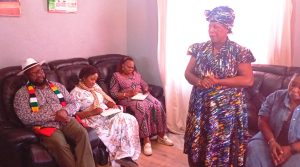
Judith Shadaya (standing)at GWC Mine in Penhalonga briefing the distinguished delegates about their mining operations as part of the 2025 International Women’s Day national commemorations hosted by Manicaland in March..
”I believe each and every step and all what I went through – the frowns, the smiles, the tragic death of my husband and son in an accident, then the hardware, farming and mining opportunities, all moulded me into a very strong woman,” said Shadaya.
She added that when talking about empowerment, women empowerment should never be left out for progressive nation building, She however urged women to formalize their business operations when empowered so that they boldly demonstrate their capabilities like their male counterparts. “When a woman is empowered she is a builder and a provider. We are also not too corrupt because we are God fearing, however women should formalise their businesses and be bold to step up,” said Shadaya.
Philanthropy
After the tragic loss of her husband and son Kingstone Junior she decided to start the Kingstone Education Fund. This fund pays school fees for disadvantaged children. She said since 2011 six children have benefited from bursaries from High School to University level. Two children are currently at First Class Academy in Mutare. She has also assisted persons with disabilities and widows who are into mining.
“I assisted one person with disability with funds to start a piggery project in Zimunya and another group I assisted them with funds to get mining rights and funds to certificates to get claims. At the mine we have widows that I am assisting to learn more about the trade and have also assisted a child headed family in Darlington low density suburb to set up a poultry project to help them make ends meet. There are several minor things I have done just to give back to the community and as my way of thanking God for his blessings,” said Shadaya.


